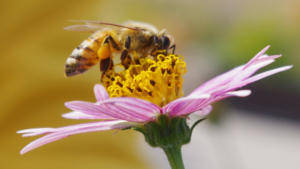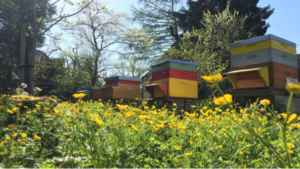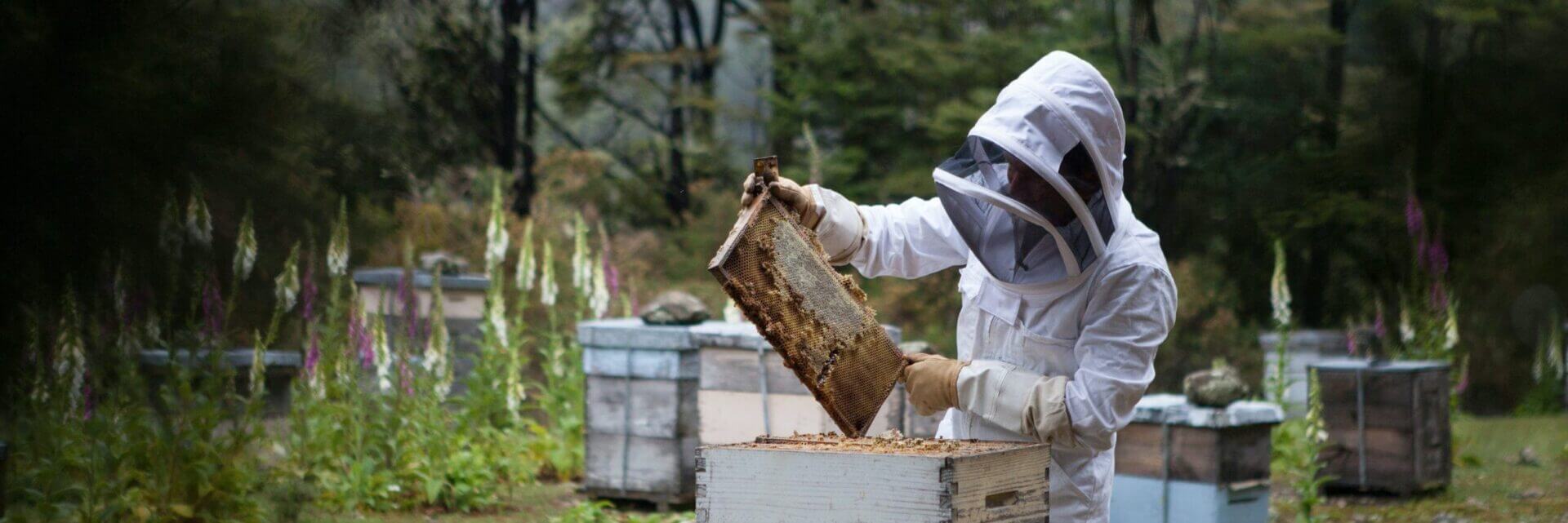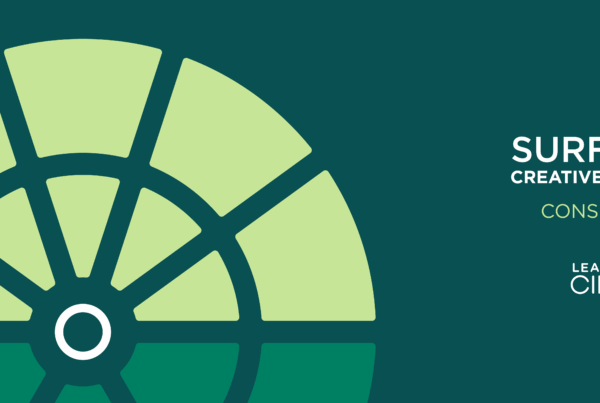Leadership Lessons From Inside a Buzzy Hive
By Philip Atkinson
There are many parallels between a busy beehive and a complex multinational organization. I’d like to share my experience as a beekeeper and a coach and draw out three key leadership lessons relevant to everyone today.
Imagine a beautiful summer day. You’re surrounded by a wildflower meadow, with rich colors and a myriad of flowers gently blowing in a dry, warm breeze. The soundtrack is the beautiful and determined hum of bees working hard. Each flower is rich with pollen — a time of plenty — an ‘infinite game.’ 
As I approach the hive, I pause and listen to the sound. From the consistent buzz and pitch, I can hear they are ‘happy’ and healthy. I can smell the sweet honey. As I move closer, I can see from the movement of the bees at the entrance that they are calm. Closer still, I can feel the warm moist air being drawn out from inside the hive. This is the role of the ‘air conditioning bees’ fanning their wings at the entrance to maintain a constant temperature and humidity inside.
Conditions can quickly change. Sentinel bees patrol the neighborhood and report back with news of threats such as a bear coming, or anything looking like a bear (which is why a beekeeper’s suit is white). If a storm is approaching, the bees can sense the drop in atmospheric pressure well before we can see clouds forming. The bees prepare to defend their home. You can see the bees at the hive entrance move in a more agitated way. You can hear the noise of the buzz increase in pitch. You can smell there has been a change. They stop making sweet honey and start making propolis, a bitter bee glue, that has a distinctly different scent.
We have a lot to learn from observing complex systems in nature like this. The first lesson I learned as a beekeeper and an executive coach is the importance of having a greater awareness of what is happening inside a system. By pausing and reflecting, a conscious beekeeper can see, hear, smell, and feel what is happening. It is important to approach the hive thoughtfully and be fully present to what is happening. If conditions are right and the bees are happy, you don’t need to wear gloves or a veil and open the hive to look inside with confidence. It is the same in a work setting, of course. Look, listen, observe. Take a moment to reflect and observe what is going on. If you take time to pause and reflect, you can understand how and why people are reacting. This investment in time doesn’t necessarily slow you down. It may allow you to proceed more quickly and more effectively or indeed to find a more appropriate time to take action. If you make a mistake and intervene too soon, driven by your own self-interest, the feedback can be quick and painful. There can be a sting in the tail, after all.
The second lesson that is fundamental to being a good beekeeper or coach or leader is to increase one’s own self-awareness. In order to support our clients, we need the greatest insight and understanding of who we are. Johari’s Window Framework has been a useful model for my own development as I increase my conscious awareness of what I know about myself. I am very grateful to the Leadership Circle Profile for increasing my understanding of my own patterns of Creative and Reactive behaviors and also a greater consciousness of my existing biases and beliefs. This has helped me to understand how and why I respond to different stimuli. I have become aware of my Pleasing Tendencies, and now I can give a voice to it. I am a ‘Pleaser in Recovery!’ I appreciate that I have found it challenging to deliver difficult news or feedback in the past, for a fundamental fear of rejection and of not being loved.
This knowledge has also empowered me to take difficult actions as a beekeeper. For example, as a queen gets older, her fertility decreases, and the hive community will rear new queen cells to hatch and compete with her. The old and new queen will ‘fight,’ and one may leave the hive accompanied by thousands of bees, a swarm. If there are multiple queen eggs, then this can be disruptive and destructive to the hive, so the beekeeper must cut them out and kill them. This drastic action is a difficult step to take but necessary for the good of the whole population. There is no benefit in being ‘pleasing’ to the queen cells. In the work setting, there is no benefit in being pleasing when what is really needed is authentic feedback. As a coach, this greater self-awareness has allowed me to challenge my clients’ limiting beliefs and be more objective in providing more direct feedback.

‘The quality of our attention determines the quality of another person’s thinking.’
I find this so true now that there are so many external stimuli and competing sources of information and distraction. The current situation with COVID-19 makes matters worse. We are all spending more time in virtual meetings, and just as with face to face meetings, our time together is precious. I am aware if attendees try and multi-task and look at other devices in a virtual meeting, the whole energy is lost. As a coach that works with leaders, it is more important than ever to set the right tone and example by paying 100% attention online. This is why we are all finding it so tiring. It’s the same when inspecting the frames inside my beehive. I need to pay 100% attention to work with the bees and not against the system. I need to be aware when they get irritated or feel threatened. When I do pay such intense attention, I can work quickly and effectively, and I experience a wonderful state of ‘flow’ as described by Csikszentmihalyi.
Time stands still as I am so fully absorbed in what I am doing.
How we respond as leaders in this time of uncertainty has an impact on all the systems that we operate in. To quote Bill Adams from this recent blog: ‘This is the time we must lead with purpose, even if we aren’t physically together. The more we can keep our teams from guessing what’s next, the more likely we are to create a stable environment for their lives as a whole.’ So let’s take time to learn from nature. Let’s increase our powers of observation, increase our self-awareness, and commit to being fully present. We can then allow all individuals to reach their full potential and create an excellent product like sweet honey. We can then enjoy the fruits of our labor while the sun shines.
I started studying beekeeping two decades ago and still call myself a novice as I have such a respect for the enormity of the topic and how much I still have to learn. I started the study of coaching at the same time, and every day, I am inspired and hungry to keep learning. With that comes the exploration of self to understand and support others.

He founded Hive-Logic to support global clients from his base in Switzerland. As a passionate beekeeper and as a father of four children, he is no stranger to stinging feedback and conflict.
Do contact him at Philip@Hive-Logic.com or through Linkedin.





